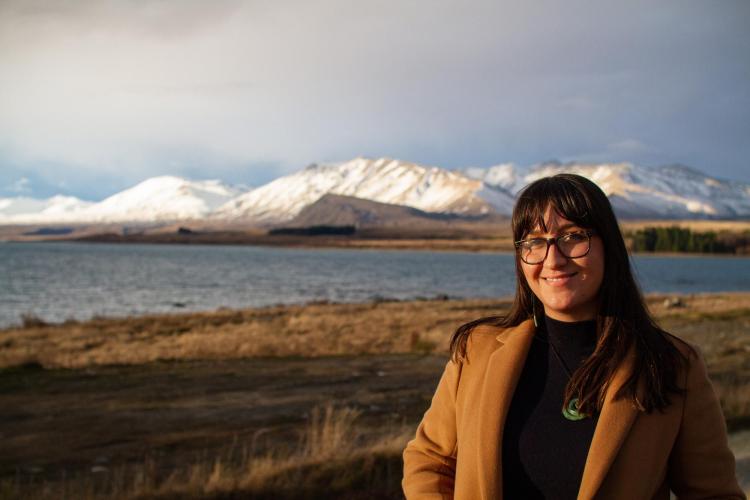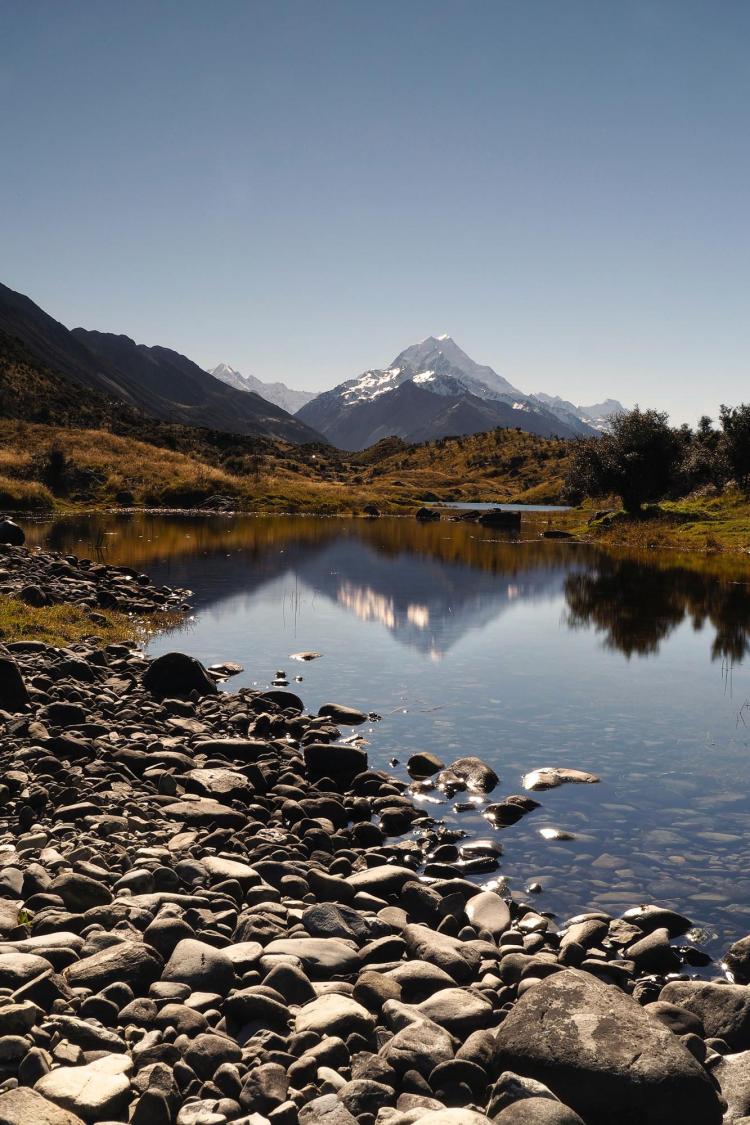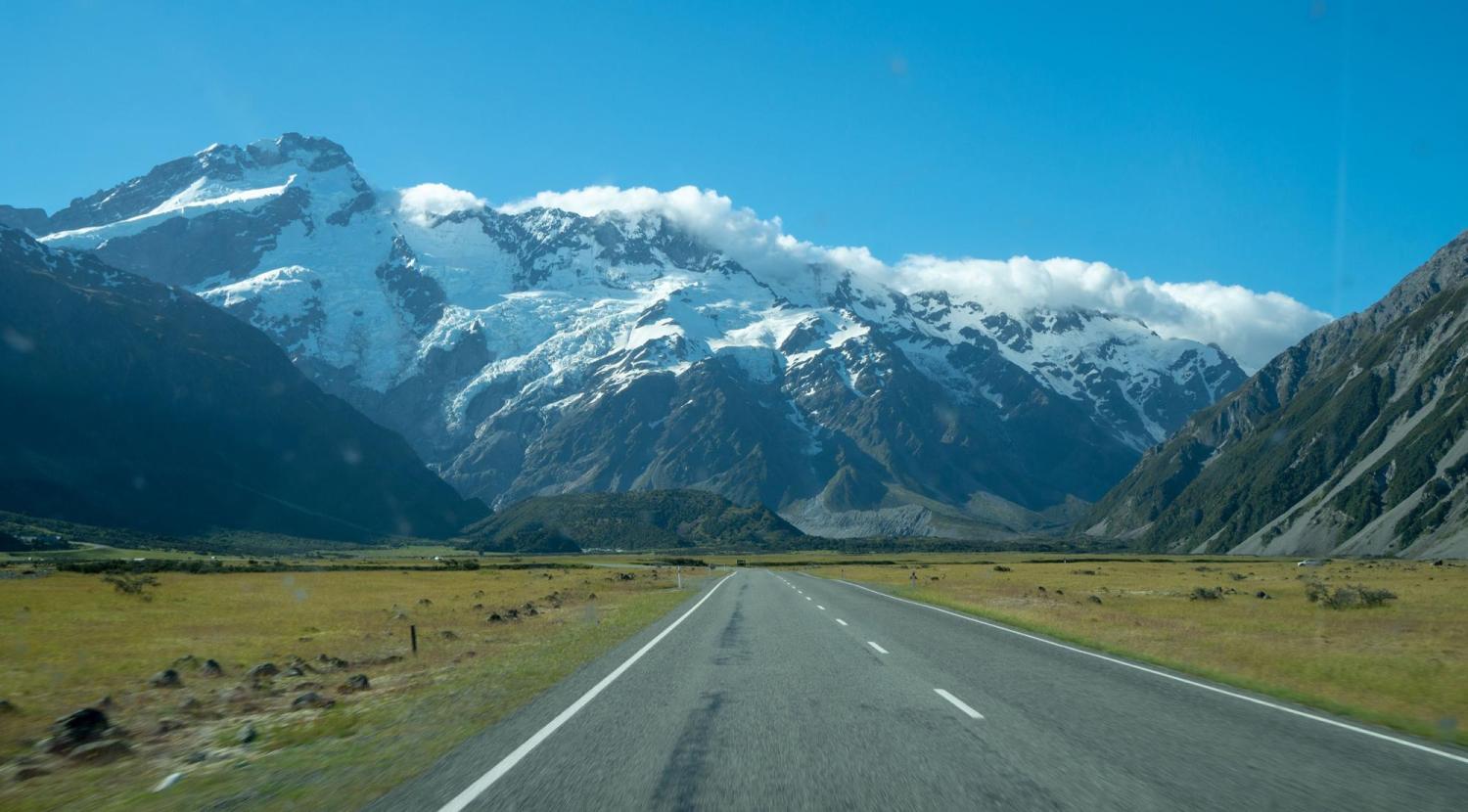Climate change hits disabled and Indigenous communities hard. Kera Sherwood-O’Regan wants their voices heard.

Kera Sherwood-O’Regan poses at Lake Takapō, New Zealand, during a June celebration of the Māori New Year. Image credit: Jason Boberg
“Children have a lot of their future ahead of them. They have to know about climate change so they can stand up, speak up and fight for their future.”

When Kera Sherwood-O’Regan was young, her parents gathered the pito (umbilical cord) that had nurtured her in the womb, and, per tradition, buried it on sacred coastal grounds in Te Waipounamu, the South Island of New Zealand, alongside the remains of her ancestors.
Growing up in the Kāi Tahu tribe, she learned early on to treat Aoraki, the chiefly mountain of her people, and Waitaki, their river, with reverence. When she went fishing with her dad, he would always throw the first catch back to Takaroa, the god of the ocean, to ensure the sustainability of the fish stocks for future generations.
“From the time we are born, we see ourselves in a deep relationship with the environment, and with that relationship comes responsibility,” said Sherwood-O’Regan, who will serve as a panelist at the upcoming Right Here, Right Now Climate Summit on the CU Boulder campus.
As climate change increasingly threatens that environment and the people who depend upon it, Sherwood-O’Regan has taken that responsibility seriously, serving as a vocal advocate not only for her fellow Māori—the Indigenous people of New Zealand—but also for people with disabilities. Having been diagnosed with fibromyalgia in her 20s, she seeks to assure that Indigenous people, people with disabilities and people like her at the difficult intersection of the two have a voice at the table.
That’s critical, she said, because they are at once uniquely affected and uniquely well suited to provide solutions.
“Indigenous and disabled people have been organizing and innovating and creating novel solutions to problems for generations, because there has been no other option for us,” said Sherwood-O’Regan, co-founder of Activate, an Indigenous- and disabled-led social impact agency. “But only very recently have our views and experiences been [accepted as] part of the mainstream climate conversation.”
Citing her mentor, Rhys Jones, she described climate change as an “inequity magnifier.” Hold it, like a magnifying glass, over existing inequities/social issues and those challenges grow more intense. She noted that in New Zealand, only about 2% of homes are accessible to people with disabilities. With waters rising because of climate change, rendering some coastal homes unsafe, that housing stock is shrinking further.
Climate change-related heat waves can also exacerbate symptoms. For instance, people with spinal cord injuries may have trouble regulating their body temperature and are more likely to suffer heat-related illnesses. Higher pollen counts and extended allergy seasons can worsen respiratory issues among those with asthma, allergies and other chronic illnesses. Her own symptoms, including migraines and fatigue, flare when the temperature rises. When climate change-related disaster strikes, deaf people and people who are hard of hearing may not hear the sirens, and people with disabilities may have trouble being evacuated.
“Everyone has the right to be rescued, but in many areas around the world, civil defense planning doesn’t account for disabled people,” she said.
More than 1 billion people, or 15% of the population, have a disability, according to the United Nations, and disabilities are disproportionately high among Indigenous populations.
“There is a massive intersection between Indigenous rights and disability rights,” she said.
For her, and other Indigenous people around the world, climate change brings another more visceral threat: the loss of their cultural sites.
Already, the burial ground Sherwood-O’Regan’s parents visited after her birth has begun to erode as rising seas lap at the coast. She has visited occasionally, reinforcing her connection to her ancestors and the land of her people.
She hopes that if she has children someday, she can do the same for them.
“It makes me so emotional to think about it. I don’t ever want to have to say, ‘I’m sorry. But we lost that land.’”



